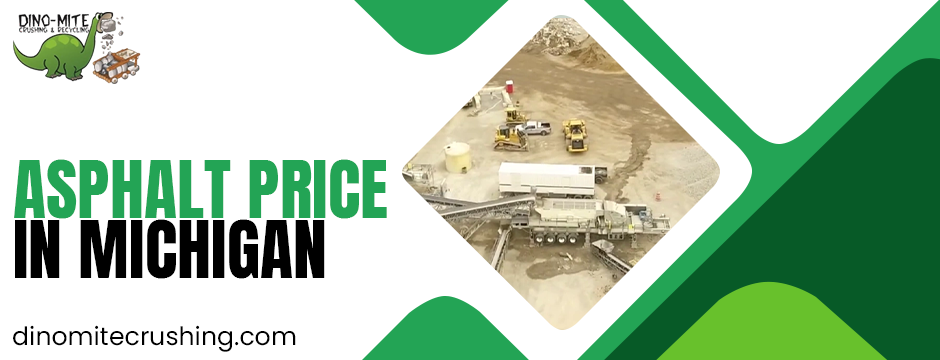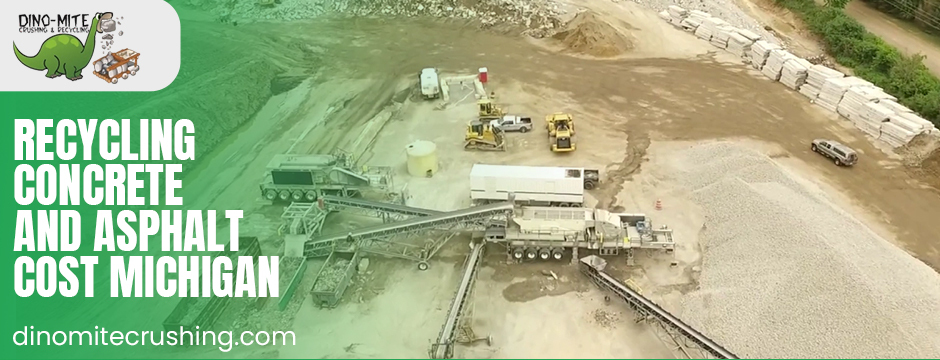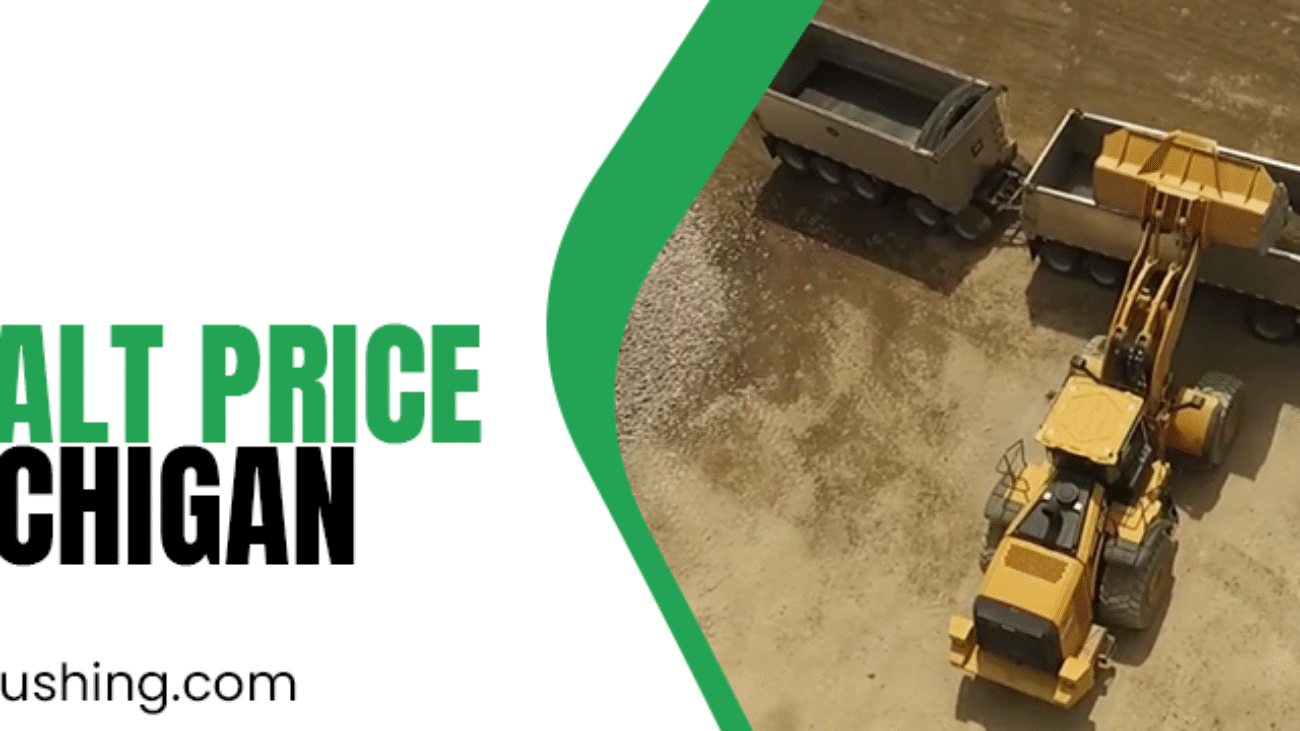Environmental stewardship and cost effectiveness go hand in hand in today’s infrastructure context. Incorporating recycled asphalt offers a pathway to substantial savings without compromising performance. With fluctuating asphalt price in Michigan, it’s more critical than ever for contractors and municipalities to understand the true return on investment of using reclaimed pavement materials. This comprehensive guide dives into the cost‑benefit analysis of recycled asphalt, revealing how upfront savings, lifecycle performance, and environmental dividends combine to deliver real ROI for projects of all scales.

The Growing Importance of Sustainable Pavement Solutions
Traditional hot‑mix asphalt production relies heavily on quarrying and refining raw materials, processes that consume energy and generate greenhouse gases. Recycling asphalt diverts millions of tons of pavement from landfills each year, conserving natural aggregates and reducing the environmental footprint of road construction. As sustainability ratings and green‑building certifications become standard requirements, specifying recycled asphalt positions your organization at the forefront of eco‑conscious design. Beyond meeting regulatory mandates, recycled mixes demonstrate corporate responsibility and can bolster public support for infrastructure investments.
Understanding Recycled Asphalt (RAP)
Reclaimed Asphalt Pavement (RAP) is created by milling or removing existing asphalt pavements, then crushing the removed material to specified gradations. The resulting aggregates retain a portion of aged binder, which, when combined with fresh bitumen or rejuvenators, produces a viable mix that mirrors virgin hot‑mix asphalt. The key variables—RAP percentage, additive type, and mixing temperature—determine the final mix’s mechanical properties. By tailoring these parameters, engineers can match or exceed performance standards for base layers, surface courses, and specialty applications, all while capitalizing on the embedded value of the existing binder and aggregates.
The Rising Asphalt Price in Michigan and Its Impact
Over the past decade, the asphalt price in Michigan has experienced significant volatility, driven by crude oil fluctuations and regional supply constraints. The skyrocketing asphalt price also disrupted maintenance schedules, as agencies delayed repaving work to avoid peak cost periods. By integrating recycled materials, project planners can insulate budgets from market swings, ensuring more predictable expenditures and avoiding the need to defer critical road repairs.
Cost Components in Asphalt Production
Producing new asphalt involves several cost centers: raw aggregates, bitumen binder, energy for heating and mixing, transportation, and plant maintenance. Each component is sensitive to market conditions, particularly the bitumen, where crude oil prices have a direct influence. Relative to the average asphalt price in Michigan, RAP can deliver material cost reductions of 15–30%, depending on the percentage of reclaimed content and the distance to recycling facilities. Additional savings arise from lower energy consumption, as cold or warm mix RAP technologies require reduced heating temperatures compared to conventional hot‑mix production.
Benefits of Recycled Asphalt: Material Savings
The decrease in the need for new materials and binder is the largest direct economical benefit of recycled asphalt. High‑quality crushed RAP serves as both a filler and a partial binder source, diminishing the need for new materials. This price gap compared to the asphalt price in Michigan directly translates into per‑ton savings at the plant gate. Moreover, by sourcing local RAP, contractors can cut transportation costs and emissions. When aggregated across large‑scale resurfacing projects, these material savings can amount to hundreds of thousands of dollars per year.
Energy and Environmental Savings Driving ROI
Energy consumption in asphalt production accounts for a significant portion of overall emissions and operating costs. Cold and warm mix processes that incorporate RAP operate at lower temperatures, reducing fuel usage by 20–40%. With energy costs tied to asphalt price in Michigan, this efficiency lowers greenhouse gas output and shrinks the operational expenses of asphalt plants. The reduced carbon footprint can qualify projects for sustainability incentives and carbon credit programs, further boosting the project’s financial returns and public reputation.
Performance and Durability Considerations
Skeptics often question whether recycled asphalt can match the durability of virgin mixes. However, when quality control protocols for gradation, binder content, and compaction are rigorously applied, RAP‑enhanced pavements deliver comparable resistance to rutting, cracking, and moisture damage. Field studies indicate that properly engineered RAP sections often outperform traditional sections in stiffness and thermal fatigue resistance. Achieving this performance parity requires adherence to best practices in material handling and mix design, ensuring that recycled aggregates seamlessly integrate with fresh binders.
Influence on Project Timelines and Logistics
Logistics can be streamlined by incorporating recycled asphalt into a project. Many recycling facilities operate mobile plants near job sites, eliminating long hauls to central asphalt plants. Contractors can schedule milling, crushing, and repaving in quick succession—often completing complete reconstruction in a single extended shift. By avoiding delays associated with material shortages or plant downtime, teams sidestep premium charges linked to the asphalt price. Accelerated schedules also minimize traffic disruptions and allow agencies to reopen roads sooner, reducing indirect economic losses.
Quantifying Cost Savings vs. Conventional Hot‑Mix Asphalt
To assess true ROI, project managers must compare all-in costs of RAP mixes against standard HMA. When compared to the prevailing asphalt price in Michigan, RAP projects often show a 10–30% reduction in material and production expenses. Factoring in lower fuel costs, reduced haul distances, and fewer disposal fees. Lifecycle cost models that include maintenance and rehabilitation further increase these savings. By monetizing extended pavement life and reduced repair cycles, the case for recycled asphalt becomes overwhelmingly compelling.
Impact on Lifecycle Cost and Maintenance
Pavement lifecycle cost analysis (LCCA) examines expenses from construction through end-of-life rehabilitation. Recycled asphalt’s enhanced stiffness and moisture resistance translate to slower distress development, reducing routine maintenance needs like crack sealing and patching. Over a 20‑year horizon, LCCA models show RAP sections can require 15–25% fewer interventions. Understanding how recycled mixes mitigate increases in asphalt price in Michigan ensures that agencies lock in lower service costs and deliver longer-lasting roadways for the public.
Overcoming Initial Investment Barriers
Despite clear benefits, some stakeholders hesitate due to perceived upfront costs: specialized equipment, staff training, and mix‑design validation. However, mobile recycling units and third‑party contractors lower these barriers by offering turnkey solutions. Grants and low‑interest loans specifically target sustainable materials initiatives, further defraying initial outlays. For projects concerned about immediate budget impacts, phased adoption—starting with lower‑volume roads—can demonstrate value before scaling to high‑traffic corridors.
Policy Incentives and Grants in Michigan
Michigan’s commitment to green infrastructure translates into tangible incentives for recycled asphalt adoption. The state’s Transportation Asset Management Council (TAMC) offers performance‑based grants that reward high RAP usage. Additionally, clean‑energy funds subsidize warm‑mix RAP equipment purchases, accelerating plant upgrades. By tapping into these programs, agencies and contractors offset the influence of asphalt price in Michigan, freeing capital for complementary initiatives like bike lanes or pedestrian improvements.
Calculating True ROI: A Comprehensive Framework
A robust ROI analysis must integrate capital costs, operational efficiencies, material savings, and lifecycle benefits. Begin with baseline quotations using the current asphalt price for virgin HMA. Overlay RAP mix quotes—accounting for additives, energy differentials, and hauling distances. Incorporate projected maintenance schedules and cost differentials over a 20‑year design life. Finally, quantify environmental benefits in carbon‑credit or sustainability scoring terms. When all factors converge, most projects reveal ROI ratios exceeding 1.5× within the first decade, making recycled asphalt a financially strategic choice.
Future Outlook: Market Trends in Recycled Asphalt
Advances in mix‑design software, rejuvenating agents, and sensor‑driven plant controls are propelling recycled asphalt into the mainstream. As more states adopt mandates for minimum RAP percentages, economies of scale will drive down processing costs further. Although crude oil prices remain unpredictable, the buffering effect of recycled aggregates will continue to tame spikes in the asphalt price in Michigan, stabilizing budgets and encouraging wider adoption. In this evolving market, early adopters of high‑RAP mixes stand to gain the greatest competitive and fiscal advantages.

Final Thoughts
Incorporating recycled asphalt is not just an environmental imperative—it’s a sound financial strategy. By offsetting volatile asphalt price in Michigan, cutting energy use, and extending pavement life, RAP delivers quantifiable ROI that outpaces traditional hot‑mix approaches. Rigorous quality control, supportive policy frameworks, and real‑world successes in Michigan underscore the viability of high‑RAP projects. As infrastructure demands grow and sustainability goals tighten, recycled asphalt will remain a cornerstone of cost‑effective, green construction, benefiting contractors, taxpayers, and the planet alike. So, if you remain interested to learn about the recycling concrete and asphalt cost Michigan for your construction projects, you must visit our website, Dino-Mite Crushing, today!










